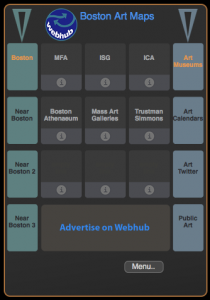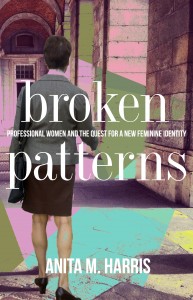Bernie and Phyl ads: will subway sex sell?
Riding on the MBTA this past weekend, I was struck by the sexually (S&M) suggestive “personal” ads for Bernie and Phyl’s furniture stores that pretty much dominated the car I was in.
One, for “one night stand” suggested going to the bedroom; another, from “long, dark, and goodlooking–capable of satisfying ten people at one time; into candlelight dinners and a little hot wax”, turned out to be a table. Yet  another read, “I’m really into the group thing….go both ways, welcome blondes, brunettes and redheads, and “if you love leather,’ you’ll love me.'” It was for sectionals.
another read, “I’m really into the group thing….go both ways, welcome blondes, brunettes and redheads, and “if you love leather,’ you’ll love me.'” It was for sectionals.
I believe in the first amendment, get the humor and enjoy double-entrendres as much as the next person. But as a female who has used dating apps and ads, my first thought was that these give the wrong idea about people looking to meet others-suggesting it’s all about kinky sex.
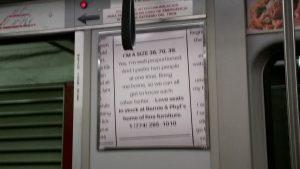 As someone who has done quite a lot of furniture shopping (even joked that I was “dating” sofas, because it took me so long to find the right one), I have to wonder who these ads are aimed at: millennials with loose morals? Desperate men with weird senses of humor? I also wonder why Bernie and Phyl, whose TV ads used to show the two of them along with their grown children emphasizing that theirs is a family business, have changed their target market. (Their newer TV ads are also quite unappealing…in black and white, with unpleasant people, sexual innuendos regarding headaches in the bedroom, family arguments and faked Brahmin accents).
As someone who has done quite a lot of furniture shopping (even joked that I was “dating” sofas, because it took me so long to find the right one), I have to wonder who these ads are aimed at: millennials with loose morals? Desperate men with weird senses of humor? I also wonder why Bernie and Phyl, whose TV ads used to show the two of them along with their grown children emphasizing that theirs is a family business, have changed their target market. (Their newer TV ads are also quite unappealing…in black and white, with unpleasant people, sexual innuendos regarding headaches in the bedroom, family arguments and faked Brahmin accents).
Of greater concern is that the subway ads could offend people who are religious, concern those travelling with children, upset those who have been sexually abused, or suggest new behaviors to individuals with psychiatric disorders.

 in fact, other ads in the car encouraged riders to join a walk against sexual violence; offered help for autism spectrum disorder; or asked “Are you anxious?” (To which, I replied, “yes,” because of Bernie and Phyl’s ads).
in fact, other ads in the car encouraged riders to join a walk against sexual violence; offered help for autism spectrum disorder; or asked “Are you anxious?” (To which, I replied, “yes,” because of Bernie and Phyl’s ads). 
Clearly, the ads are provocative and will get lots of attention–after all, even I am writing about them. Such attention might well bring new customers to Bernie and Phyl’s stores. And it may well be true that “sex sells.” But I’d bet that the ads will turn off their regular, more traditional, customers.
I believe that people have a right to say what they wish and to do what they want in the privacy of their own homes and that most advertisers should be free to hype their stuff in print, radio, TV and on the Internet. But I also believe there should be limits to free speech in public places: (Hate speech, sex talk and some politics should not be inflicted).
It strikes me that the Bernie and Phyl are walking a fine line with their sexually suggestive ads–in part because the subway is different from other advertising media. The signs are overhead whether you want to see them or not. Unlike ads you drive by on the highway or see in print or on TV or the internet, the subway posters remain in your face: you can’t drive past them or dismiss them by turning a page, changing a channel, or clicking to move on.
It is true that most subway riders can look away and focus on their smartphones. But at a time when mutual respect and consideration are so often sadly lacking, I would much prefer to shop in stores promoting kindness, compassion and inclusion. As a communications consultant, I believe it would make good business sense for Bernie and Phyl to choose a more uplifting advertising strategy. In fact, I AM looking for a new sofa. (And for a date!)
–Anita M. Harris
Anita Harris is a writer and communications consultant based in Cambridge, MA. She is the author of Broken Patterns: Professional Women and the Quest for a New Feminine Identity, and of Ithaca Diaries, Coming of Age in the 1960’s.
New Cambridge Observer is a publication of the Harris Communications Group, an award-winning PR and content strategy firm based in Kendall Square, Cambridge.


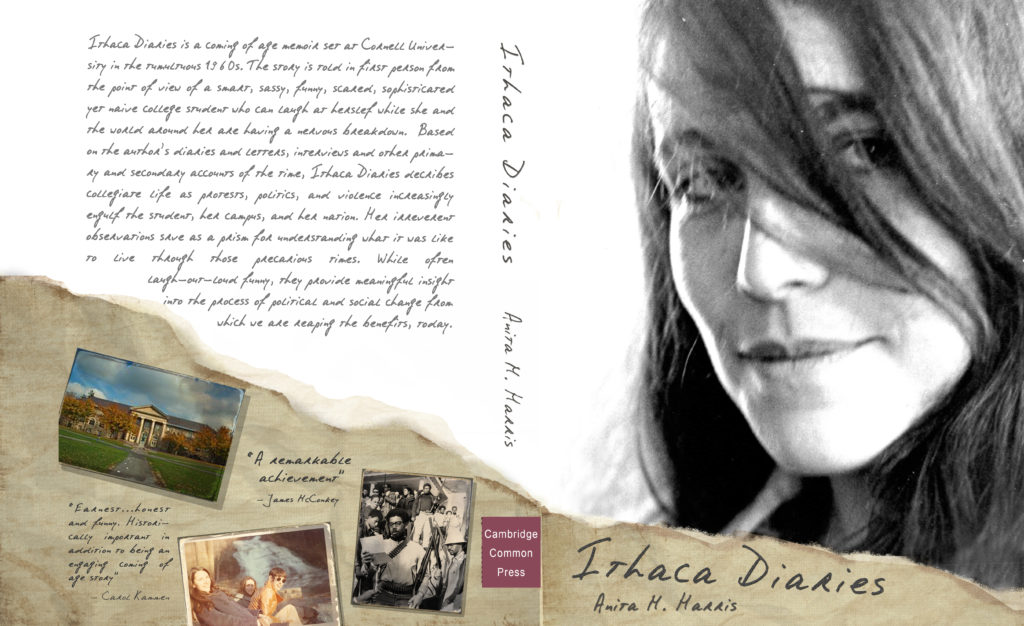
 ebsite,
ebsite, 
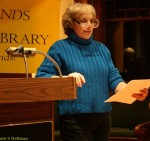

 When I checked out Yuvee, Inc.’s newly launched
When I checked out Yuvee, Inc.’s newly launched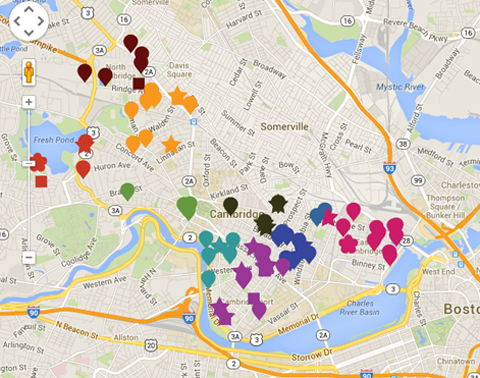
 The video, by The Cantabridgians”, by Michael Oatman, includes 23 1-minute portraits of Cambridge Residents posed with objects in locations of their choice, designed to provide a sense of them in their particular neighborhoods.
The video, by The Cantabridgians”, by Michael Oatman, includes 23 1-minute portraits of Cambridge Residents posed with objects in locations of their choice, designed to provide a sense of them in their particular neighborhoods.